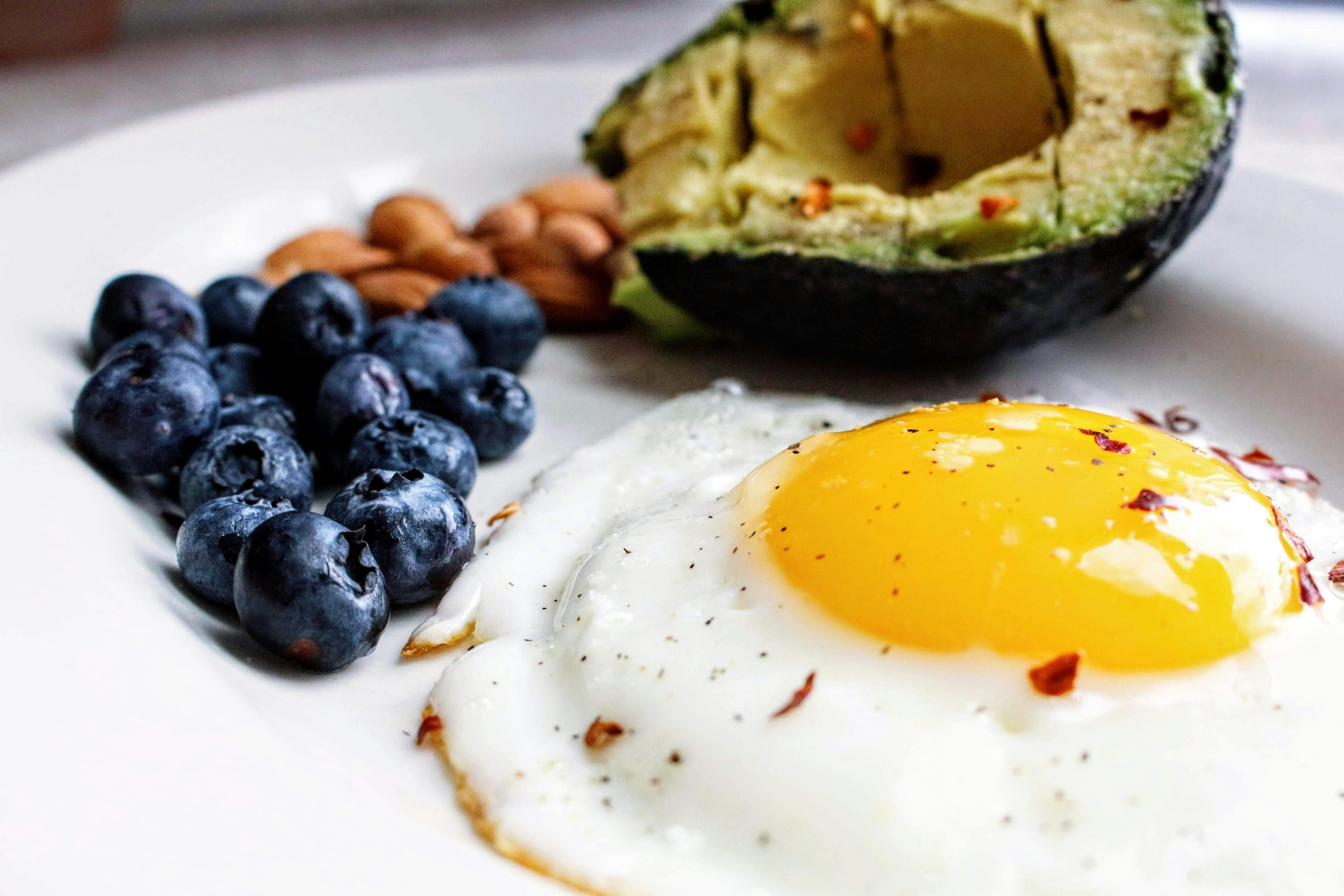Top 10 Foods That Help Build Strong Bones
Maintaining strong, healthy bones is essential for overall well-being and mobility throughout life. While many people associate bone health primarily with calcium intake, proper nutrition for bone strength encompasses a variety of nutrients working together. The foods we consume daily play a crucial role in building and maintaining bone density, which becomes increasingly important as we age. Bone density naturally decreases over time, making dietary choices that support bone health a vital component of preventative healthcare. Let's explore ten nutrient-rich foods that provide exceptional support for your skeletal system.

Nutrient-Packed Foods for Optimal Bone Health
Certain foods stand out for their exceptional bone-supporting nutrient profiles. Dairy products remain the most commonly recognized source of bone-building nutrients, but they’re far from the only option. Calcium, vitamin D, magnesium, vitamin K, and phosphorus all work synergistically to strengthen bone tissue. Dark leafy greens, for example, offer calcium alongside vitamin K, which helps regulate calcium metabolism. A diet incorporating various bone-supporting foods ensures you receive the full spectrum of nutrients necessary for optimal skeletal strength and integrity.
Calcium-Rich Foods Beyond Traditional Dairy
While dairy products like milk, yogurt, and cheese are excellent calcium sources, providing approximately 300mg per serving, several non-dairy alternatives deliver impressive amounts of this essential mineral. Fortified plant milks often contain comparable calcium levels to cow’s milk. Leafy greens such as kale and collard greens provide bioavailable calcium alongside other bone-beneficial nutrients. Canned sardines and salmon with bones offer both calcium and vitamin D. For those with dairy sensitivities or preferences, calcium-set tofu delivers around 200mg of calcium per half-cup serving, making it an excellent protein source that simultaneously supports bone health.
The Critical Role of Vitamin D in Bone Strength
Vitamin D serves as calcium’s essential partner in bone health, facilitating proper calcium absorption in the intestines. Without adequate vitamin D, even generous calcium consumption cannot effectively strengthen bones. Few foods naturally contain significant vitamin D, with fatty fish like salmon, mackerel, and sardines ranking among the best sources. Egg yolks provide smaller amounts, while mushrooms exposed to UV light develop higher vitamin D content. Many foods, including certain breakfast cereals, orange juice, and plant milks, are fortified with vitamin D to help bridge nutritional gaps. Regular consumption of these vitamin D-containing foods supports calcium utilization and overall bone density.
Magnesium-Rich Foods for Structural Bone Support
Magnesium plays a fundamental role in bone structure, with approximately 60% of the body’s magnesium stored in our skeletal system. This mineral contributes to bone crystal formation and influences the activities of bone-forming cells. Foods rich in magnesium include nuts (particularly almonds and cashews), seeds (such as pumpkin and chia), whole grains, and beans. Dark chocolate contains respectable magnesium levels, providing about 65mg per ounce of 70-85% cocoa content. Avocados deliver approximately 58mg of magnesium per fruit while also offering healthy fats that support overall nutrition. Incorporating these foods regularly helps maintain the structural integrity of bones throughout life.
Vitamin K Foods for Enhanced Calcium Utilization
Vitamin K plays an often-overlooked role in bone metabolism by activating proteins that bind calcium to bone tissue. This fat-soluble vitamin exists in two primary forms: vitamin K1, found predominantly in leafy greens, and vitamin K2, present in fermented foods and animal products. Dark, leafy greens like kale, spinach, and collard greens provide excellent sources of vitamin K1, with a single cup of cooked greens offering several times the recommended daily intake. Fermented foods such as natto (fermented soybeans) contain exceptionally high amounts of vitamin K2. Other notable sources include Brussels sprouts, broccoli, fermented dairy, and liver. Regular consumption of these foods helps ensure calcium is properly directed to bone tissue rather than accumulating in soft tissues.
Understanding Bone Density Tests and Related Services
A bone density test measures bone mineral content to assess strength and fracture risk. These tests, also called dual-energy X-ray absorptiometry (DXA or DEXA) scans, are particularly important for at-risk individuals, including postmenopausal women and older adults. The test is non-invasive and typically takes 10-30 minutes to complete.
| Service Type | Provider Type | Average Cost (Without Insurance) | What’s Included |
|---|---|---|---|
| Standard DEXA Scan | Hospital | $125-$300 | Comprehensive bone density measurement of hip and spine |
| Standard DEXA Scan | Outpatient Imaging Center | $100-$250 | Same as hospital, often more affordable |
| Peripheral DEXA | Medical Clinic | $40-$150 | Limited scan of extremities (wrist, heel, finger) |
| QCT Scan | Specialized Imaging Centers | $200-$400 | 3D imaging with more detailed bone structure assessment |
| Ultrasound | Community Health Centers | $25-$100 | Basic screening, less accurate than DEXA |
Prices, rates, or cost estimates mentioned in this article are based on the latest available information but may change over time. Independent research is advised before making financial decisions.
Protein Requirements for Bone Matrix Development
Protein constitutes approximately 50% of bone volume and about one-third of bone mass, making adequate protein intake essential for bone health. While calcium provides mineral content to bones, protein forms the structural matrix that holds those minerals in place. Good protein sources that simultaneously support bone health include dairy products (which provide both protein and calcium), fish with edible bones like sardines, beans, and lentils (which offer protein alongside magnesium and other minerals), and tofu (particularly calcium-set varieties). Research suggests that adequate protein intake supports bone density maintenance, especially when combined with sufficient calcium and vitamin D.
Omega-3 Fatty Acids and Their Bone-Protective Effects
Emerging research indicates that omega-3 fatty acids may help preserve bone density by reducing inflammation and supporting bone formation processes. Cold-water fatty fish like salmon, mackerel, sardines, and trout provide the most bioavailable forms of omega-3s (EPA and DHA). Plant sources such as flaxseeds, chia seeds, and walnuts contain ALA, which the body partially converts to the more active forms. Including fish in your diet twice weekly or incorporating plant sources of omega-3s regularly may contribute to a comprehensive bone health strategy alongside calcium and vitamin D-rich foods.
Foods to Limit for Better Bone Health
While focusing on bone-supporting nutrients is important, equally significant is minimizing foods that may compromise bone density. Excessive sodium intake increases calcium excretion through urine, potentially leading to bone loss over time. Highly processed foods, especially those containing phosphate additives, can disrupt calcium-phosphorus balance when consumed excessively. Similarly, foods and beverages with high caffeine content may affect calcium absorption when consumed in large quantities. Alcoholic beverages can interfere with vitamin D metabolism and hormone balance that affects bone health. Balancing your diet to favor bone-supporting foods while moderating these potentially problematic items creates an optimal nutritional environment for maintaining strong bones.
Maintaining strong bones requires a comprehensive nutritional approach that includes adequate calcium, vitamin D, magnesium, vitamin K, and protein from varied food sources. By incorporating these ten bone-supporting foods regularly while limiting those that may compromise bone health, you can create a dietary foundation that supports skeletal strength throughout life. Remember that consistency matters more than occasional consumption, making these bone-friendly foods most effective when they become regular components of your long-term eating pattern.
This article is for informational purposes only and should not be considered medical advice. Please consult a qualified healthcare professional for personalized guidance and treatment.




